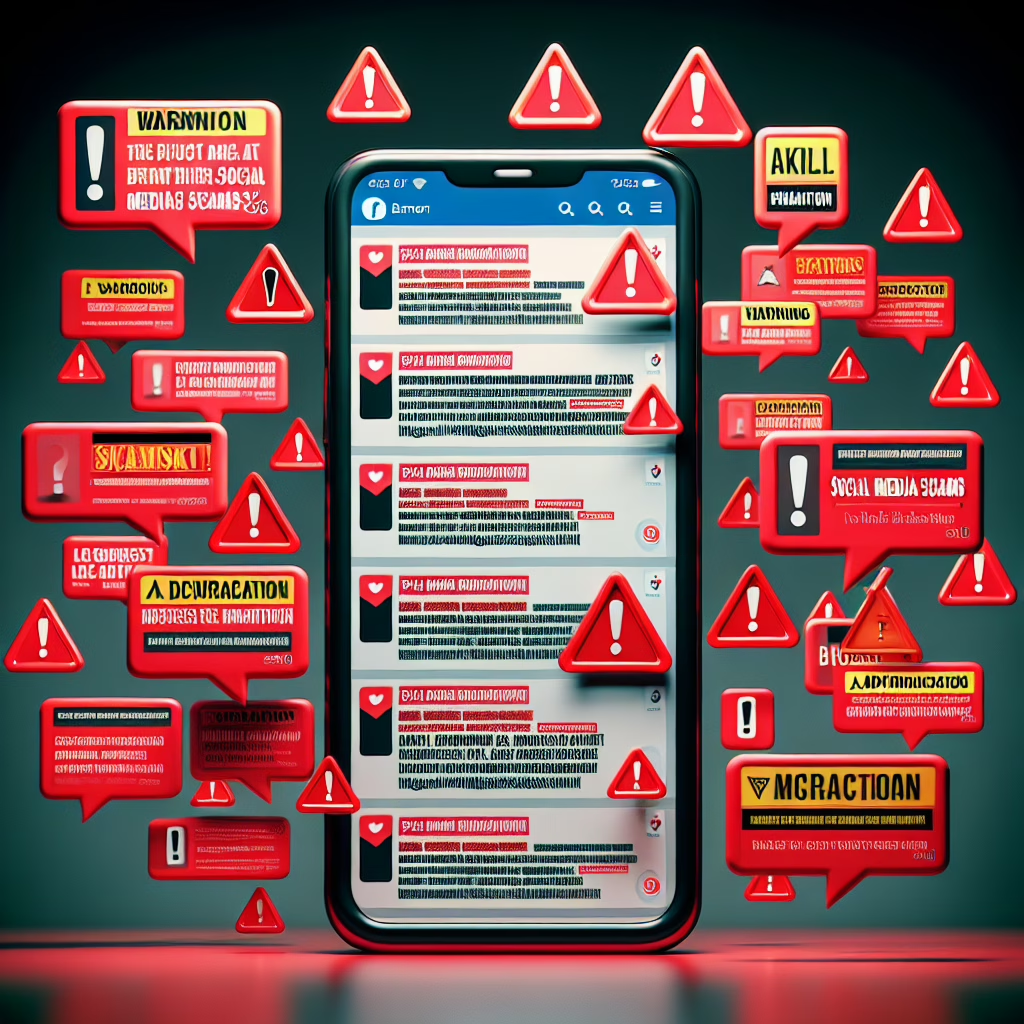Introduction: Facebook Scams Are Not What They Seem!
Ah, Facebook! The land of cat memes, vacation photos, and—wait for it—scams! Yes, those jaw-dropping deals that seem too good to be true are often just digital mirages. In this post, we’ll dive into how to spot these infamous Facebook scams while keeping a smile on your face and your wallet intact.
Why Are Facebook Scams So Common?
Let’s face it: scammers are like cockroaches; they thrive in the dark corners of the internet, and they absolutely love social media platforms like Facebook. Why? Because they know that people are more trusting when scrolling through their feeds. Who wouldn’t be tempted by a shiny new gadget advertised at half the price? But just like that suspiciously cheap pair of sneakers, these deals often come with a hefty dose of buyer’s remorse.
Moreover, with millions of users worldwide,Facebook provides a vast landscape for scammers to exploit, making it essential for users to stay alert and informed about potential threats.
Spotting the Red Flags: How to Identify a Scam
Now that we’ve established that not all that glitters is gold, let’s talk about how to spot these pesky Facebook scams. Here are some tell-tale signs:
- Unrealistic Offers: If someone is offering you a luxury item for the price of a cup of coffee, it’s time to raise an eyebrow. Remember, if it seems too good to be true, it probably is!
- Poor Grammar: Scammers often lack attention to detail. If you see posts riddled with typos or awkward phrases, consider that a red flag waving furiously.
- No Contact Information: Legitimate businesses provide clear contact details. If you can’t find a way to reach out for support or questions, it’s best to steer clear.
- Panic-Inducing Language: Beware of posts that pressure you into making quick decisions. Scammers thrive on urgency—don’t fall for it!
- Overly Shared Memes: Often, scams are disguised as trending posts or memes circulating within Facebook. Take a moment to verify the authenticity before sharing!
How to Protect Yourself from Facebook Scams
Alright, savvy internet user, now that you know what to look for, let’s discuss how to shield yourself from these scams:
- Do Your Homework: Before clicking on any link or making a purchase, research the product and seller. A quick Google search can save you from potential heartbreak (and financial loss).
- Check Reviews: Look for reviews from other buyers. If the product has more complaints than compliments, it might be best to skip that deal.
- Enable Two-Factor Authentication: This little feature adds an extra layer of security to your account. It’s like putting a deadbolt on your front door—always a good idea!
- Report Suspicious Activity: If you encounter what seems like a scam, don’t just scroll past it! Report it to Facebook so they can take action and protect others.
- Educate Yourself That Facebook Is Not a Marketplace: Many assume Facebook is a safe platform for purchases. Remember, it functions primarily as a social platform, not a shopping site.
The Role of Technology in Combating Scams
The fight against Facebook scams isn’t just up to users; technology plays a crucial role as well. Social media companies are constantly updating their algorithms to catch fraudulent posts before they spread like wildfire. Facebook employs advanced machine learning techniques to identify and remove suspicious content, making it a little safer for its users. However, they can’t do it alone! Users need to remain vigilant and educated about potential threats.
A Word on Privacy: Keep Your Data Safe
Your personal information is gold in the eyes of scammers. To keep your data safe while navigating the social media jungle:
- Adjust Your Privacy Settings: Take control of who sees your posts and personal information. Less visibility means fewer chances for scammers to target you!
- Avoid Oversharing: While it’s tempting to share every detail of your life online, remember that less is more when it comes to personal information. Scammers can use overshared details to guess passwords or security questions.
- Use Strong Passwords: Think of your password as the bouncer at the club—you want it tough enough to keep out unwanted guests!
- Keep Software Updated: Ensure your device’s operating system and apps, including Facebook, are regularly updated to protect against security vulnerabilities.
Final Thoughts: Stay Alert and Stay Safe!
In conclusion, while Facebook can sometimes feel like a wild west of scams lurking behind every click, being informed is your best weapon against fraudsters. Remember these tips on spotting scams and protecting yourself online. So go ahead, scroll through those adorable puppy videos—but keep one eye peeled for those sketchy deals!
If you have experiences or tips on dealing with Facebook scams, don’t hesitate to share them in the comments below!
A big shoutout and thank you to TechRadar for shedding light on this important topic! For more insights on how to stay safe online, check out our post on how holidaymakers are at risk from devious new cyber threats, or learn about how GTA and Minecraft are being used to lure cyberattack victims. Always stay informed—it’s the best defense!

